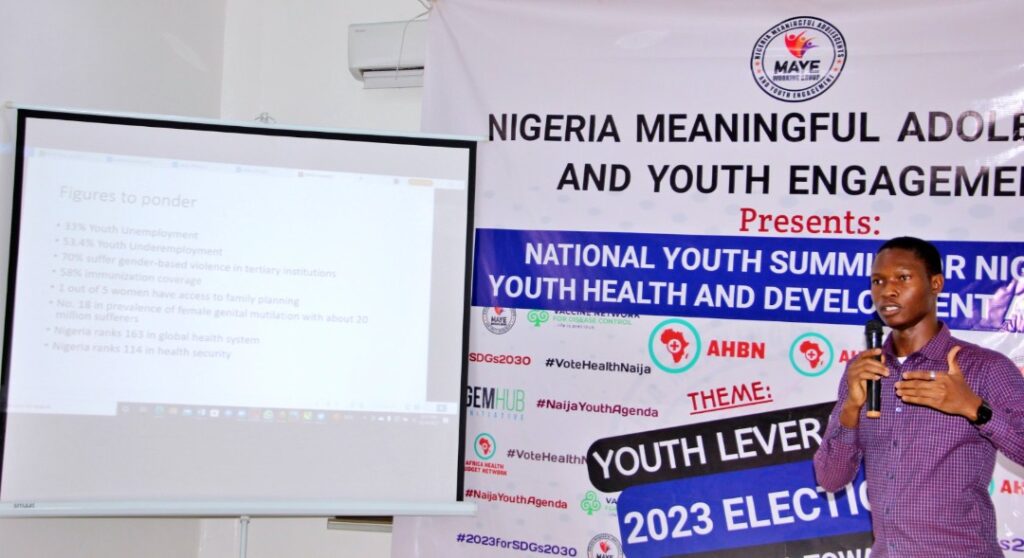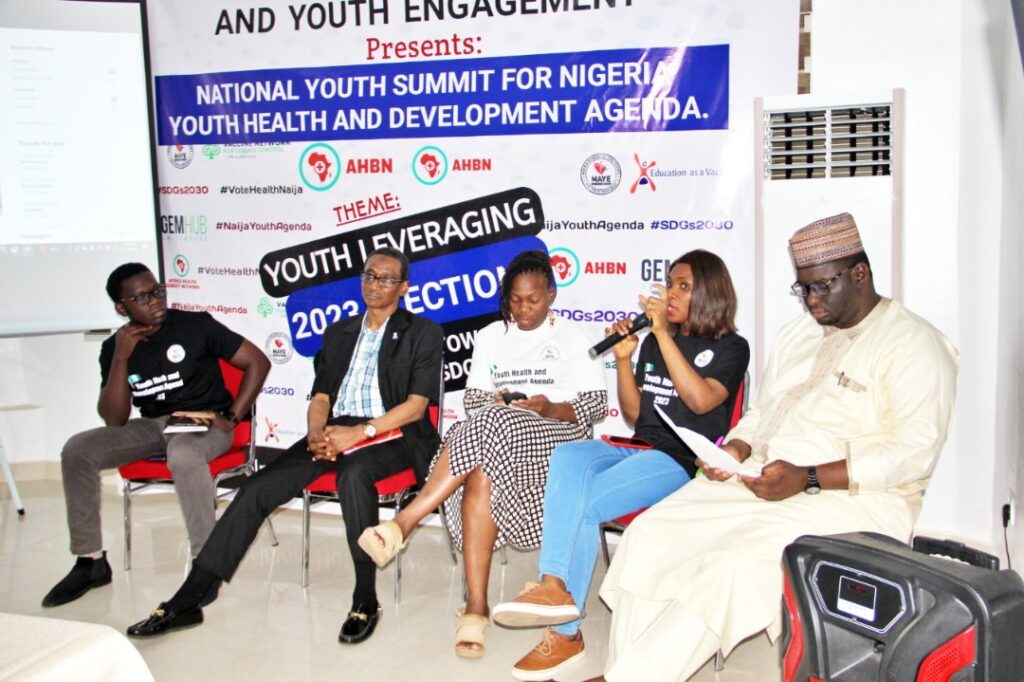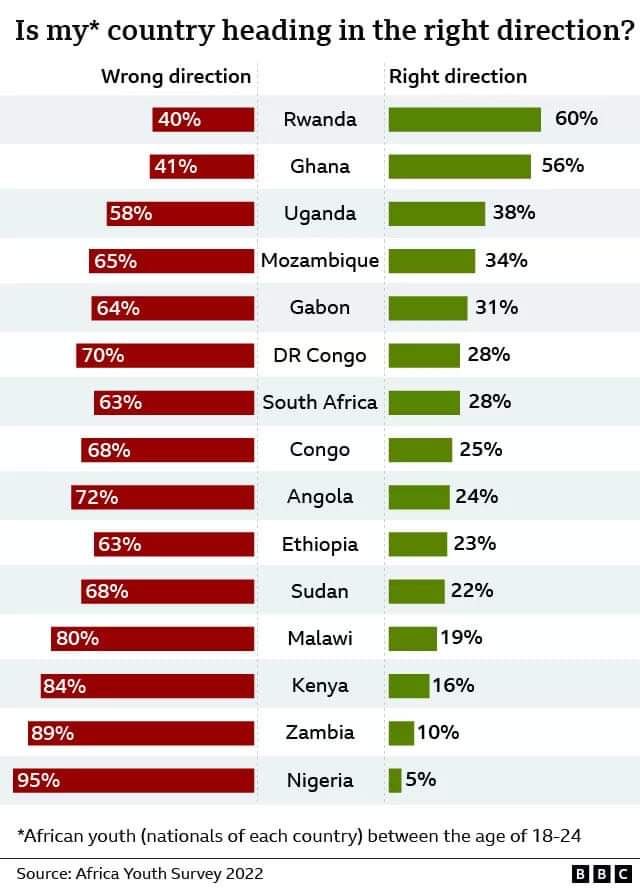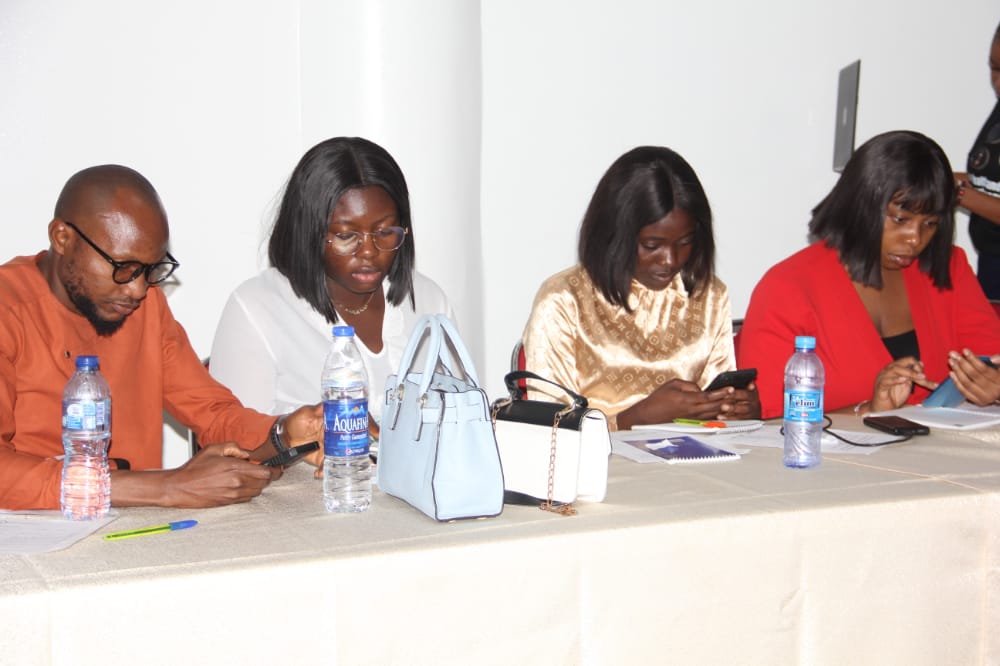By Olympus Ade-Banjo

About a couple of weeks ago I was in a room filled with young people from different parts of Nigeria, to discuss the state of the country and come up with some developmental objectives for the 2023 elections. The convener had simply raised the idea as a blank cheque of some sort during one of the steering committee meetings, that we can host a meeting with other young and attempt to make specific demands of the political class during the 2023 electioneering season. We quickly jumped on it, perhaps out of excitement, but it subsequently dawned on how important this activity would eventually turn out.
While preparing my presentation for the event I stumbled on a social sciences study where young people in about a dozen African countries were asked what they felt about the trajectory of their respective countries in the recent time. The result for Nigeria is though not unexpected, yet daunting nonetheless. Ninety-five percent of young people in Nigeria believe the country is heading in the wrong direction. Nigeria is a country used to grim statistics, in fact, it may be concerning for some while at least shocking for others, any time a Nigeria is credited with positive statistics. But this particular case is different and I do not imagine that the implication of this particular statistic is yet exhaustively appreciated. So, I will attempt to do justice to this in the next two paragraphs before I return to why that small gathering of about 70 attendees – in-person and online – on the fourteenth of December 2022, is critical to our national and demographic life as young Nigerians.

All countries are prone to challenges, including the first and last-world countries. In fact, countries can face a prolonged crisis that can take desperate toll on the living standards of its citizens and the developmental statistics that emanate from same. In democracies, countries can be badly hit by poor economic policies of a present government but trust the institutions of democracy to limit the span of their misery either by forced or tenurial eviction. In less democratic settings, the temperaments of citizens and the power dynamics between competing interests might provide basis for citizens to maintain trust in the direction of their country – but in any case, in which any of these fails, we have Nigeria and any other country that fits the description.
To nail the point, Nigeria’s problem is not limited to its alarming maternal and child death or its over 20 million out-of-school children or its 9% tertiary institution enrollment, or 40 million-large unemployed, 20 million victims of female genital mutilation, 133 million multidimensional poverty, 95 million absolute poverty or even the 70% female sexual harassment on our higher education campuses among others; the cardinal point of Nigeria’s conundrum for young people right now is its active opposition to the survival and prosperity of the young population. In other words, Nigeria is not a vehicle that faces challenges but one that is decidedly and autonomously working against the interest of its denizens.
It is important to note that the perception of young people that Nigeria is going in an opposite and opposing direction cannot be faulted by the lack of consensus on what direction Nigeria is expected to go. But it has now become crucial to collectivize on the direction which we desire, taking advantage of the election season in 2023 when new drivers are expected assume the wheels of a worrisome vehicle. These were my thought at the Nigeria Meaningful Adolescent and Youth Engagement Summit while setting the stage for all the participants to attempt the exercise of imagining clear and achievable direction for the country.

Deliberations were made after a rich panel discussion with development experts such as an adolescent health advocate Oyeyemi Pitan, Anti-GBV advocate ABIODUN Essiet and a former lawmaker who headed the House of Rep’s committee for health Hon. Muhammad Usman among others. Eventually, all the participants online and offline populated a preformatted Agenda in the cloud, at real-time. Expectedly, the Agenda was agog with many ideas, all wonderful in all the shades of the word, and along streamlined thematic areas that we felt can be conveniently monitored. They were health, education, employment and economic empowerment, human Rights, sustainability and climate, inclusion, transparency and accountability. The document is further worked on and the draft is being processed for publication.

Although I will be dedicating another article to dissect the Agenda which we nick the Charter of Youth Demand 2023-2030, once it is published this January; you can expect to see new kinds of advocacy points that you can put in a checklist and tick as the months and years go by through 2030. Some of these points such as the optimization of primary health centres to offer mental health services to young people and tailored health insurance schemes for young people, were covered in news reportage of the event, by Daily Reality, Health Reporters and Radio Nigeria among others. Beyond recognizing the democratic justice in making the largest single demographic to contribute meaningfully to nation-building, it is enormous the capacity of young people to solve problems in the most nuanced manners.
So, if you ask me if we should listen to young people and make their aspirations shape the final political dispensation between 2023 and 2030 which are the twilight years of sustainable development goals… Well, I’d say the old ways never worked for us anyway; so, what do we have to lose?
Olympus Ade-Banjo is the Co-Chair of MAYE.



